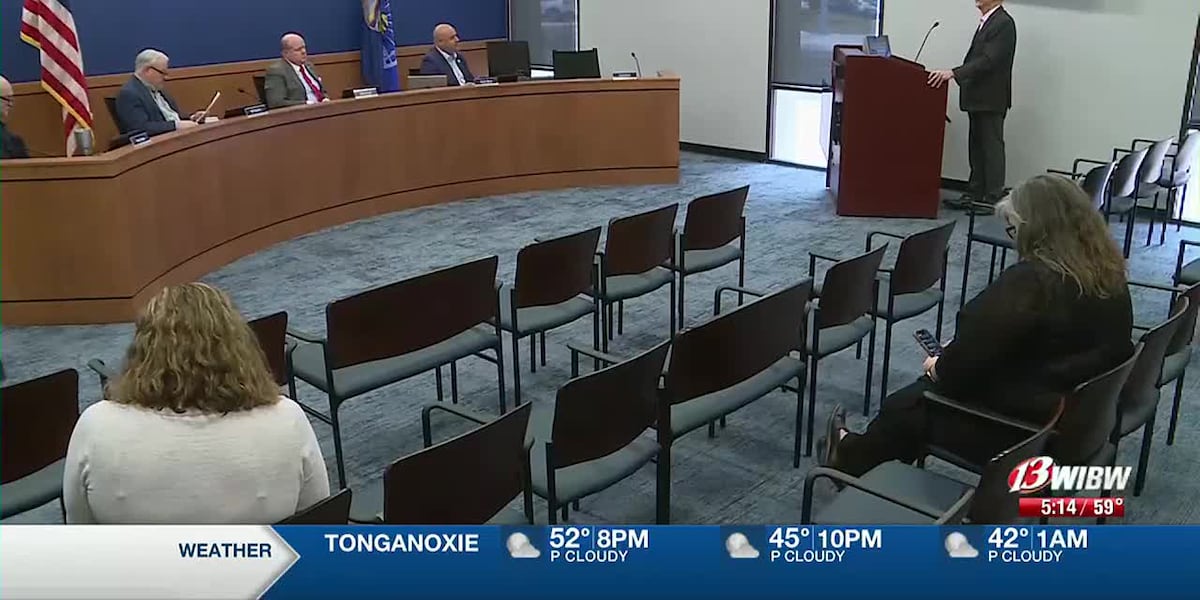
TOPEKA, Kan. (WIBW) – The demand for numerous services offered by Valeo Behavioral Health has grown over the past year, and the mental health center is looking into more ways to improve.
The volume of Valeo services, such as crisis intervention and detox services, has increased. Detox services increased by 182% from Dec. 2022 to Dec. 2023, and the demand for crisis intervention services went up 49% in the same period, leading to an overall increase in the volume of services offered to 18.5% from Dec. 2022 to Dec. 2023.
| Total service volume (Dec. 2022 – Dec. 2023) | 19,547 units (2022) vs. 23,166 units (2023) | 18.5% increase |
| Crisis intervention service volume (Dec. 2022 – Dec. 2023) | 529 units (2022) vs. 790 units (2023) | 49% increase |
| Detox service volume (Dec. 2022 – Dec. 2023) | 764 units (2022) vs. 2,157 units (2023) | 182% increase |
Valeo’s CEO, Bill Persinger, presented Valeo’s latest care report to the Shawnee Co. commissioners during a Monday work session on March 4. When questioned about how the increase came about, Persinger says it can be several reasons: the economy, price increases that a family with a fixed income cannot withstand, the housing market, and the overall societal pressures.
“We have tried to make ourselves available to people, so part of it is you build it, they will come,” said Persinger. “If you don’t, they won’t. Or they will be there, and they will be unserved, and they will not know what the problem is. So, being more accessible to people is part of that, but I think the number of people who are struggling and trying to adjust has brought more people to seek crisis care and other kinds of services. We will try to get the word out all we can. The stories we are hearing from people are more acute and desperate. So, the kind of pinch that society is in right now in terms of social and health problems, but there is more awareness. So, people are aware that; ‘Oh gosh, I have a problem.’ Are more likely to come in, particularly if the doors are wide open.”
Persinger says some major challenges they face include caring for the uninsured, which is currently at 30% of their patients, and the overall demand for crisis care. Shawnee Co. does offer some funding to assist, and Valeo does accept grant funding from the state as well.
“The constant challenge we are going to have at Valeo until Medicaid is expanded to include working people who just don’t qualify at the present time is going to be the uninsured and the underinsured. The demand for crisis care is pretty significant. People are struggling with housing and so we have made… Especially with the inner agency groups that we have been working with, trying to make strives there. People are struggling with food insecurity a number of things but some of these things revolve around personal and family crises that we are trying to respond to. Currently, the number of uninsured individuals that we have is right at 30%. It is a constant challenge. Right back to the county’s funding that pays for that. Much of the state’s grant money that we get pays for care for the uninsured, but with price increases, staffing demand, and just the increase in demand it is an area where we are going to continue to struggle.”
Another project Persinger says Valeo is looking into is a “one-stop shop,” and providing re-entry services to inmates leaving prison. Persinger says in collaboration with the Shawnee Co. Department of Corrections organizers discussed ways to improve re-entry services to the inmates to ensure the inmates have access to the services they need as they leave prison and go back into society, which led to a revival discussion of a “one-stop shop.” One place to offer all available services to anyone looking for child care, mental health care, housing vouchers, employment, and more while enrolling in the services.
Organizers are currently in the beginning stages of this effort and will offer more details as it becomes available.
Persinger also mentioned a coalition called “The Intersection Coalition.” A coalition currently comprised of 35-40 people who will meet once a month to discuss topics of importance, such as:
- Competency to Stand Trial (CST) Evaluations and Restorations (driven by SCDOC)
- Needs assessment (driven by SCHD)
- Suicide Prevention
- One-Stop Shop and Re-Entry Center
- Homelessness and Housing
- Food Insecurity
- Behavioral Health Needs of Seniors
- Access to Behavioral Healthcare
Copyright 2024 WIBW. All rights reserved.
